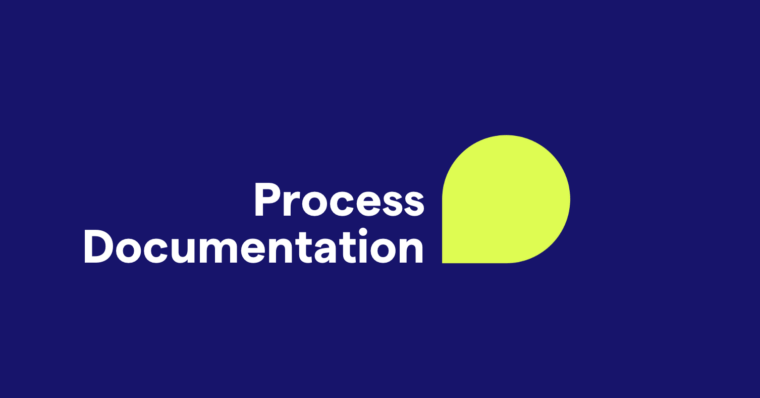
You’ve been asked to write a self-evaluation. That means not only do you have to reflect on the past year and demonstrate your value to the company you work for, but you also have to do it with a dash of humility and eagerness to grow.
No pressure, right?
Let’s break down all the necessary steps, simplify things, and take the dread out of writing a self-evaluation. You’ve got this!
Before You Begin Writing Your Self-Evaluation
A lot of the work that goes into writing your own review is prep work. If you were aware that a self-evaluation was on the horizon, you may have been proactive and kept notes about your accomplishments and struggles over the course of the year. In that case, congratulations! You’re halfway there.
But if the review process was a surprise or you didn’t prep, don’t fret. There’s plenty you can do to pull together a strong self-evaluation.
1 Know how the self-evaluation is going to be used
It’s helpful to know why your boss has asked for a self-review. Will it be used when he or she writes your performance review? Will it be brought into play when you’re considered for raises or bonuses? How in-depth should the evaluation be? Should it include any analytics? This information will give you a solid starting point and ultimately affect how you write the review.
2 Write out a list of your accomplishments
It’s time to think about what you’ve achieved over the past year. Brainstorm and create a master list of the things you’ve done. For now, include everything you can think of. As you sit down to write your review, you can whittle that list down to the essentials—the things you’re most proud of and especially those that brought the most value to the company.
3 Gather analytics if you can
Make your value quantifiable whenever possible. “I increased my customer retention” isn’t nearly as compelling as “I increased my customer retention by 21 percent.” The extra time you take to do some analysis before you write your review will pay off by solidifying the value of your accomplishments. Data talks!
4 Write out a list of your struggles
Your self-appraisal shouldn’t consist solely of you tooting your own horn. It’s important to show that you recognize your on-the-job challenges. Again, be comprehensive. You can trim the list down to the major issues when you begin to write.
Writing Your Self-Review
Now that you’re organized, you’re ready to begin writing. Here are a few guidelines to keeping your review positive and aimed at showcasing your contributions while also helping with your professional development.
5 Narrow your accomplishments list down
Sure, you’ve done a lot over the course of the year, but your review should be about the highlights. Include any achievements that you have data to support. Also include the things you’re most proud of. Show off your best work.
6 Don’t forget to align your review with your manager’s or team’s goals
What goals was your manager or team striving to reach over the past year? How did your efforts contribute to reaching those goals? It’s important to include this information in your self-review so your manager can clearly see how you’ve contributed.
7 Stay positive when describing your challenges
It’s important that you use positive language to describe the things you’ve struggled with on the job. Your goal is not to call attention to your failures but to show your willingness to grow. Whenever possible, offer up your own solution to the problem. For example:
“Failed” is a negative word. You don’t want your boss to equate your name with failure. Instead, use positive language, and don’t forget to show what you’ve done to address the problem:
8 Keep the focus on you
If you didn’t quite reach your objectives, don’t point fingers—this is your review, not your team’s. Your self-evaluation is no place to play the blame game. If you have a problem with a coworker and you believe that problem has affected your performance, that’s something you need to bring to your manager’s attention separately, and ideally long before your review.
9 Don’t forget to ask for growth opportunities
Your self-review is a great place to make your case for professional development opportunities. Remember, in order to get what you want you’ve got to be willing to ask for it. So, even if your boss didn’t specifically request it, go ahead and make your pitch to get that certification, attend that training session, or register for that conference. Your boss will likely appreciate your enthusiasm and desire to amp up your skill set.
10 Remember our self-evaluation do’s and don’ts
- Do incorporate feedback you’ve received from others. It’s okay to include testimonials or meaningful quotes if you’ve got them. Show that others appreciate your contributions.
- Don’t just make a list. A bullet-pointed list of your accomplishments doesn’t show much effort on your part. Write your review out. Thoughtfully.
- Do prioritize. Remember to focus on the highlights when it comes to achievements, and the major concerns when it comes to challenges. Don’t be tempted to include a laundry list.
- Don’t make typos. Even if writing isn’t a big part of your job, your self-review is no place for typos and grammatical errors. Proofread!
- Do get a second opinion. It’s not a bad idea to have a friend, family member, or trusted colleague read over your self-evaluation before you turn it in. They can help you not only check for errors but also make sure your tone is positive and constructive.
Writing a self-review doesn’t have to be a dreaded chore. Organize yourself before you begin, pull together statistics whenever possible, focus on the positive and developmental, and you’re sure to impress. Not only that, but you’ll benefit from reflecting on the year in a way that recognizes your accomplishments and sets you on the right path for self-improvement.
![]()






